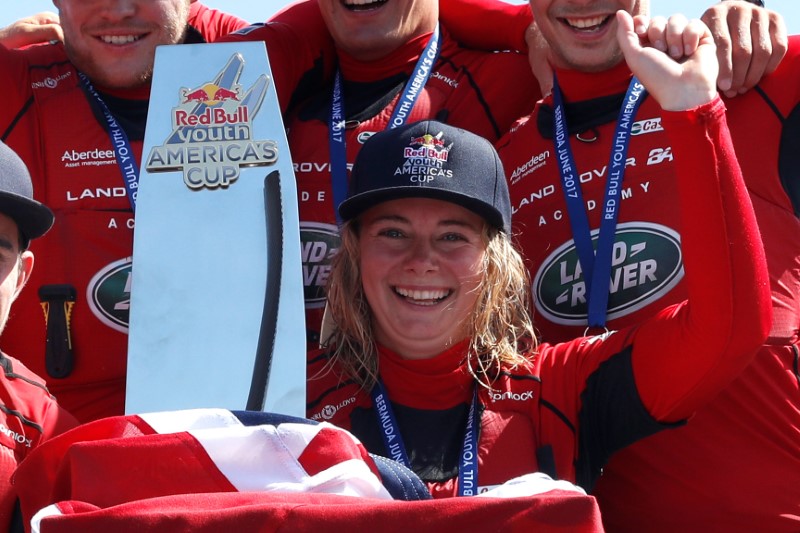By Tessa Walsh
HAMILTON, Bermuda (Reuters) - Annabel Vose was the only woman sailing in the sport's biggest event of the year, but the 22-year-old Britain made her mark, winning the Red Bull Youth America's Cup in Bermuda as strategist on the Land Rover BAR Academy team.
Female participation on high-speed catamarans has been curtailed by their physical demands and weight limits, but a change in the youth event helped Vose win her place on the team.
"I feel incredibly proud to have achieved this ... and hopefully will have shown all the teams that it's an advantage to have a girl on board. None of the other teams had girls and we did and we won," Vose told Reuters after the event.
Vose, who is studying marine engineering at Southampton University, made her way through Land Rover BAR's selection process after winning four World Championships, one European and 10 national sailing titles.
Although there are women in the support crews and shore teams in the main America's Cup which has just finished in Bermuda's Great Sound, sailing remains largely a male preserve.
This lack of women in the hunt for sailing's most prized trophy emphasises the difficulty they face participating on the foiling catamarans, which are sailed with crews of six, and offer relatively few opportunities for sailors of either gender.
"All credit to Annabel for getting on a boat and Land Rover BAR for supporting her through the process," Saskia Clark, an Olympic gold and silver medallist in the 470 class and winner of the female World Sailor of the Year Award in 2016, said.
UNCHARTED WATERS
Olympic sailing classes still provide the best opportunities as women battle to get experience of sailing fast boats and trying to chart a career into elite America's Cup sailing, although mixed multihull crews remain a possibility.
"We need young women athletes to have experience of this process if we want to get women in the America's Cup," Clark told Reuters on the sidelines of the event.
In the Cup's current incarnation, the intense physical demands created by an emphasis on speed, science and technology mean that there are only two positions seen as easily open to women, which rely less on brawn and more on brains.
"There are two spots open to women, helming and wing (sail) trimming," Clark said.
After Emirates Team New Zealand's triumph in the America's Cup on Monday, the format is set change again as the competition heads to Auckland, with an increased emphasis on more physically demanding sailing that could make it even harder for women to get on board.

"In the past, there were a lot more opportunities for women at the top end of the sport. Women have won the America's Cup and I'm wondering where those opportunities have gone," double Olympic gold medallist Shirley Robertson, who was in Bermuda as a television commentator, told Reuters.